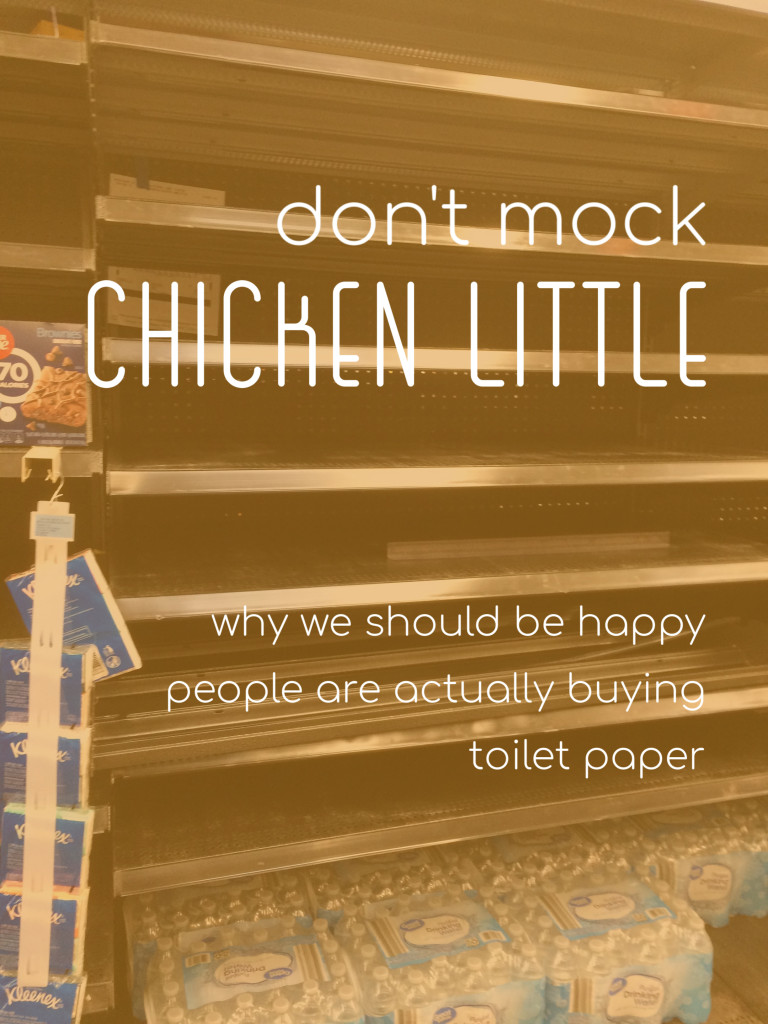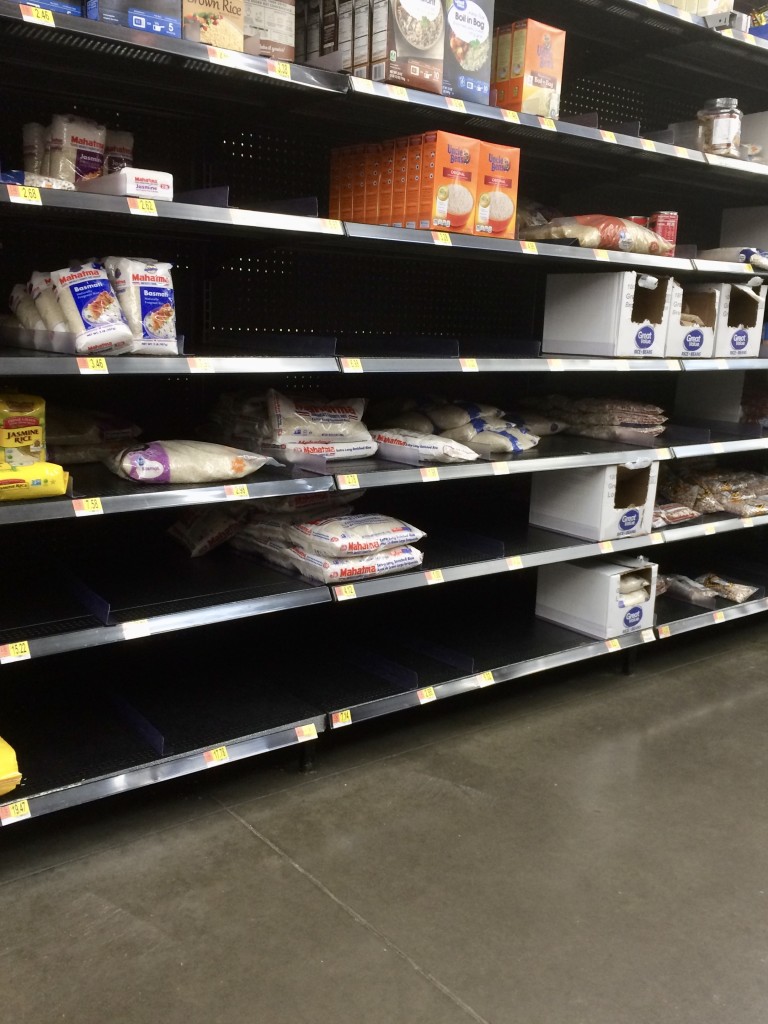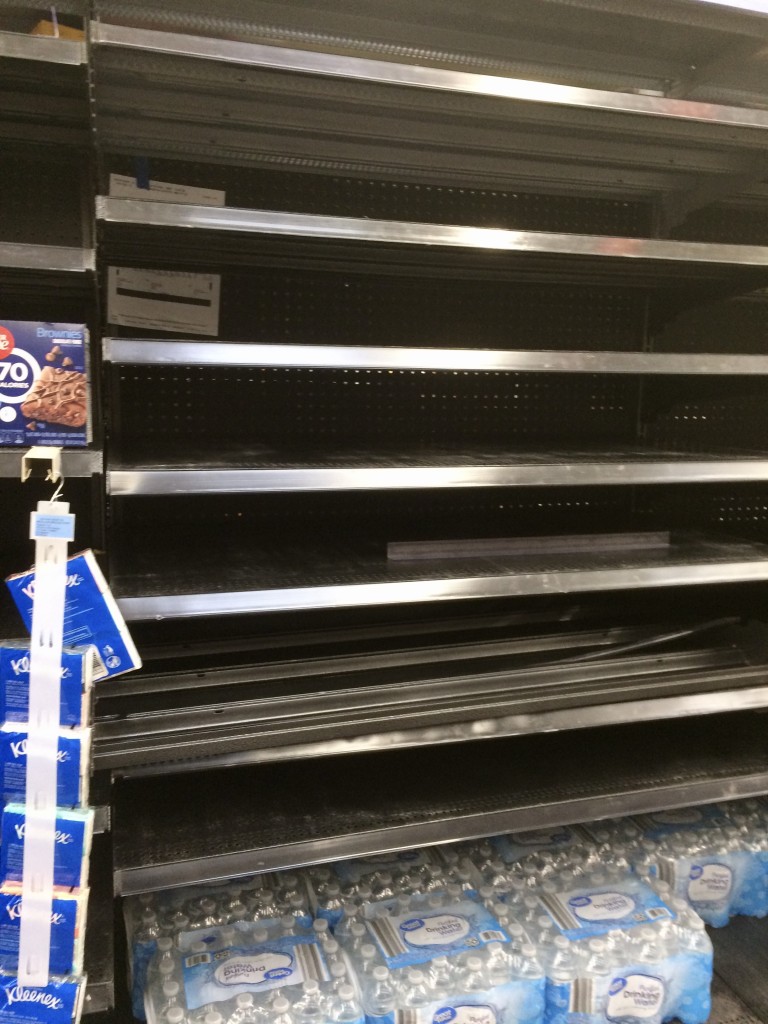It’s currently quite popular to mock preparedness. The new coronavirus strain is coming for the American way of life, we’re told every time we flip on the radio, tune in to the news, or scan our social media sites. People are dying. Only the elderly. But China didn’t ship anything and the shelves will be bare. It’s just the flu. What if there is an enforced quarantine? The relentless stream of information has been screaming at us since January, and we are already exhausted. So, naturally, we as a people are doing what we do when we can’t escape a continual tide of ugliness— tuning out, finding scapegoats, and distancing ourselves from the whole ugly mess.

For some reason, one of the groups we’ve turned on is those who have weighed the hype and decided to err on the side of “an abundance of caution.” Anyone with extra toilet paper in their cart, anyone who appears to be buying more than a few days’ worth of dry beans, anyone who has picked up a 3-pack of Clorox wipes is suddenly the enemy, or at the bare minimum some sad, Chicken Little character worthy of a little ribbing.
And I get it. If a huge chunk of folks didn’t decide to bulk buy all at once, I’d still be able to get toilet paper off the shelves at my local WalMart. There would be more than a handful of bags of flour and sugar if panic buying hadn’t taken hold. We won’t even talk about things like masks and over the counter medications. This sudden decision by some to create from scratch a home-based stockpile is inconvenient for all of us.

But here’s the truth: while a rush of people suddenly rectifying their negligence in the area of preparedness is a huge strain on the supply system, those people walking into a potential crisis without having gathered their own supplies are an even bigger problem. Because when it comes down to it, it’s not the job of government agencies or entities to make sure your family can weather anything. That responsibility lies solidly on your own shoulders. If a large percentage of the population hasn’t heeded general preparedness warnings, and resources must be allocated or concessions made to allow for the assistance of those who are imperiled by their own heedlessness, guess who becomes the bigger strain on those systems?

Having a backup supply of food and water isn’t a lack of faith in God and His ability to provide. It’s a common sense step that allows the people who need help most in any kind of emergency to remain the focus. Every roll of toilet paper sold now might just be one that the public isn’t crying out for FEMA to provide later. Every full cart currently shoring up supplies in what might have been a fairly sparse pantry is a series of meals, possibly, that the Red Cross might not have to hand out following an earthquake, a flood, or some other horrible, unforeseen event. Or maybe it’s actually going to let some sick family hold out at home one more day and not unknowingly pass on a contagion that sickens someone’s grandmother— whether it’s coronavirus, the flu, or something altogether different. Who is to say?
My hope is that the legacy of coronavirus in the U.S. is a people who take the call to be prepared for emergencies that much more seriously in the every day. My hope is that we all rest easy knowing that, come the worst, we can be part of the solution— whether that’s being available to volunteer or simply staying put and letting the professionals do their jobs. My hope is that we are confident in the ability of our family and our community to weather some discomfort and maybe even something far worse.
So leave the mom with a cart full of ramen noodles and the last box of Kleenexes alone, o.k.? Save your ire… and pray for those who will, sadly, be impacted by this virus.